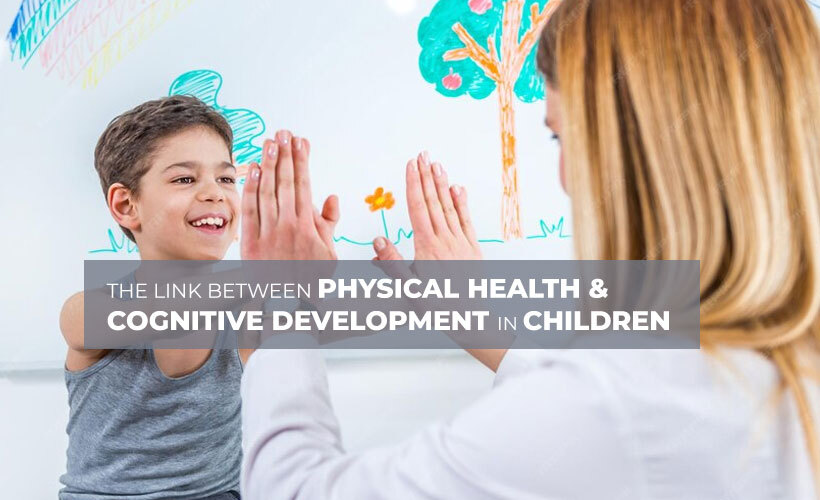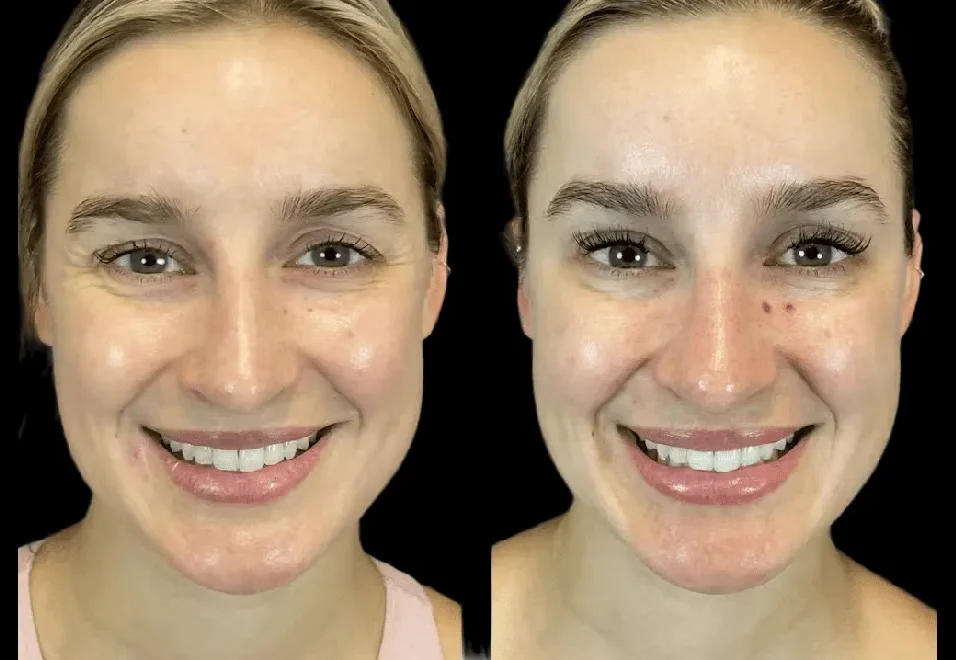The Link Between Physical Health and Cognitive Development in Children
Physical health plays a key role in how children grow and learn. A child’s physical well-being impacts their emotions, thinking, and interactions with others. Cognitive development, which refers to how children think, learn, and understand their surroundings, is closely linked to physical health. When children are physically healthy, their brains function better, making learning easier and more effective. This article explores how physical health supports cognitive development and offers advice for parents and teachers on supporting children’s growth.
1. What is Cognitive Development?
Cognitive development is the process through which children learn, think, remember, and solve problems. It begins at birth and continues into adulthood, forming the basis for learning both in school and in daily life. Cognitive development happens in four main stages:
- Sensorimotor Stage (0-2 years): Infants learn about the world through their senses and actions.
- Preoperational Stage (2-7 years): Children begin thinking symbolically, though their thoughts are still intuitive.
- Concrete Operational Stage (7-11 years): Children start thinking logically about real events.
- Formal Operational Stage (12+ years): Adolescents begin to think abstractly and logically.
Each of these stages is vital for how children interact with the world. Physical health plays an important role in helping children successfully move through these stages.
Do you want to visit Char Dham? Char Dham Travel Agent is the best place to plan your Char Dham tour. You can book the tour from here.
2. Why Physical Health Matters for Children’s Growth
Physical health is made up of several factors: good nutrition, exercise, and enough sleep. These all directly influence brain function and general development. When children are healthy, they are better able to focus, remember things, and solve problems.
- Nutrition provides essential vitamins and minerals that the brain needs to function well.
- Exercise increases blood flow to the brain, helping with memory and focus.
- Sleep is key for the brain to rest and recharge, which is crucial for learning and memory.
By taking care of these areas, children can boost their cognitive abilities and thrive in both school and life.
3. How Exercise Boosts Cognitive Growth
Exercise is one of the best ways to support cognitive growth. Physical activity increases blood flow to the brain, improving focus, memory, and learning. Studies show that exercise even promotes the growth of new brain cells, particularly in areas that help with memory and learning.
Would you like to visit Indiar? A tour operator in India is the best place to plan your tour. You can book a tour from here.
Engaging in activities like running, biking, and playing sports can help children stay focused and alert. Exercise triggers the release of special chemicals in the brain called neurotransmitters, which help brain cells communicate better. This improves learning and memory. Research by the U.S. Department of Health has shown that kids who engage in sports or physical activities tend to perform better in school, especially in subjects like math and reading.
4. The Role of Nutrition in Cognitive Health
The foods children eat have a big impact on their brain health. Nutrients like Omega-3 fatty acids, vitamins, and minerals are crucial for thinking and learning. Healthy foods such as fish, nuts, leafy greens, and whole grains can boost memory and cognitive function.
For example:
Would you like to visit Haridwar? Travel agents in Haridwar are the best place to plan your trip. You can book your tour right here.
- Omega-3 fatty acids in fish, like salmon, improve brain function and memory.
- Iron found in spinach and beans helps kids stay focused and pay attention.
On the other hand, poor nutrition can cause problems. Children who do not eat a balanced diet may struggle with concentration and memory, making learning harder.
5. How Sleep Supports Cognitive Development
Sleep is another important factor for cognitive growth. During sleep, the brain organizes and stores information from the day. Without enough sleep, children may have difficulty focusing, remembering, and solving problems.
For children aged 6 to 12, the American Academy of Sleep Medicine recommends 9 to 12 hours of sleep each night. Teens need 8 to 10 hours. Without enough sleep, children may become moody, make poor decisions, and have trouble concentrating at school. Sleep impacts both academic performance and emotional well-being.
Children who sleep well tend to perform better academically. They can concentrate, retain information, and solve problems more easily. A good night’s rest helps them wake up ready to learn and face the day.
6. Physical Health’s Impact on Social and Emotional Skills
Physical health does not just impact cognitive development. It also affects a child’s emotional and social skills. Kids who stay active tend to feel less stressed and anxious. Exercise triggers the release of endorphins, which are natural mood boosters that help children feel happy and calm.
Activities like team sports teach kids important social skills, such as teamwork, communication, and leadership. These skills are not only helpful in the classroom but also in life. Active children are also better at handling stress and emotional challenges, which helps them interact with others and improve their academic performance.
7. Studies Linking Physical Health and Cognitive Growth
Numerous studies show a strong connection between physical health and cognitive development. For example, research by the Centers for Disease Control and Prevention (CDC) found that children who participate in physical education programs tend to perform better academically, scoring higher on tests and earning better grades.
Another study in the Journal of Pediatrics found that physically active children scored higher on memory and attention tests. These studies highlight the direct benefits of physical activity for brain health and learning abilities.
8. Tips for Parents and Educators to Support Physical Health
Parents and educators have a crucial role to play in promoting physical health, which supports cognitive development. Here are some easy ways to help children stay healthy and boost their learning abilities:
- Encourage outdoor play: Set aside time for activities like running, biking, or sports. These activities keep kids active and help their brains stay alert.
- Provide nutritious meals: Offer a balanced diet rich in brain-boosting foods like fish, leafy greens, and whole grains.
- Create a sleep routine: Help children get enough sleep by setting a regular bedtime and a calming bedtime routine.
- Model healthy habits: Show children the importance of physical health by staying active and eating well yourself.
Summary
The link between physical health and cognitive development in children is clear. Regular exercise, good nutrition, and adequate sleep all work together to enhance brain function, memory, and learning. By taking care of their bodies, children perform better academically and develop important social and emotional skills. Parents and educators can help children by encouraging healthy habits that support cognitive development.
Call to Action
For parents and educators aiming to support children’s growth, focusing on physical health is a great first step. Encourage regular exercise, balanced meals, and healthy sleep routines to help children reach their full cognitive potential. For additional guidance, consider reaching out to a professional healthcare staffing agency near me for resources and support in promoting children’s health and development.






